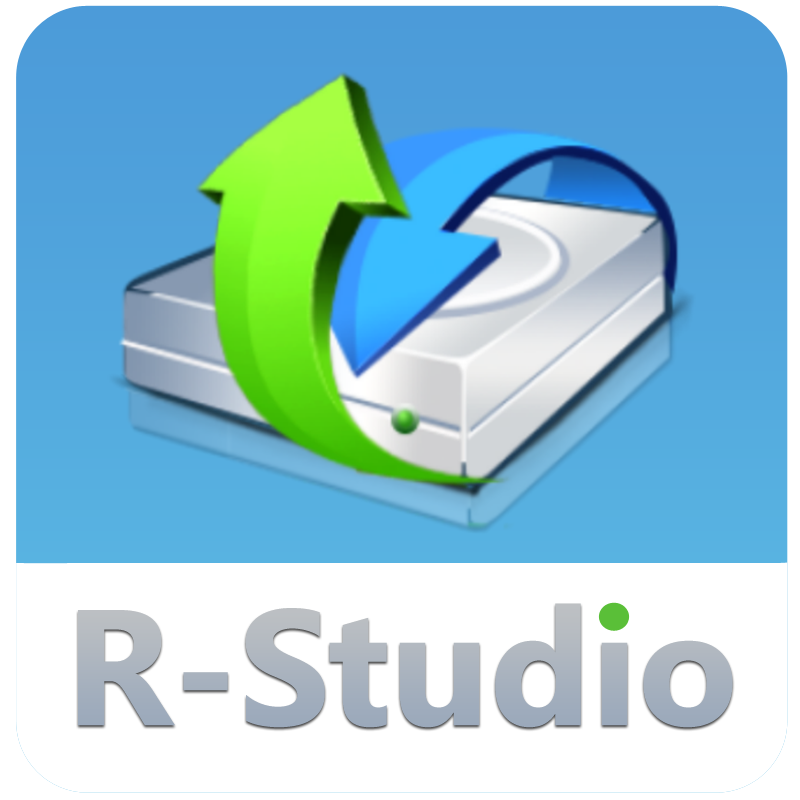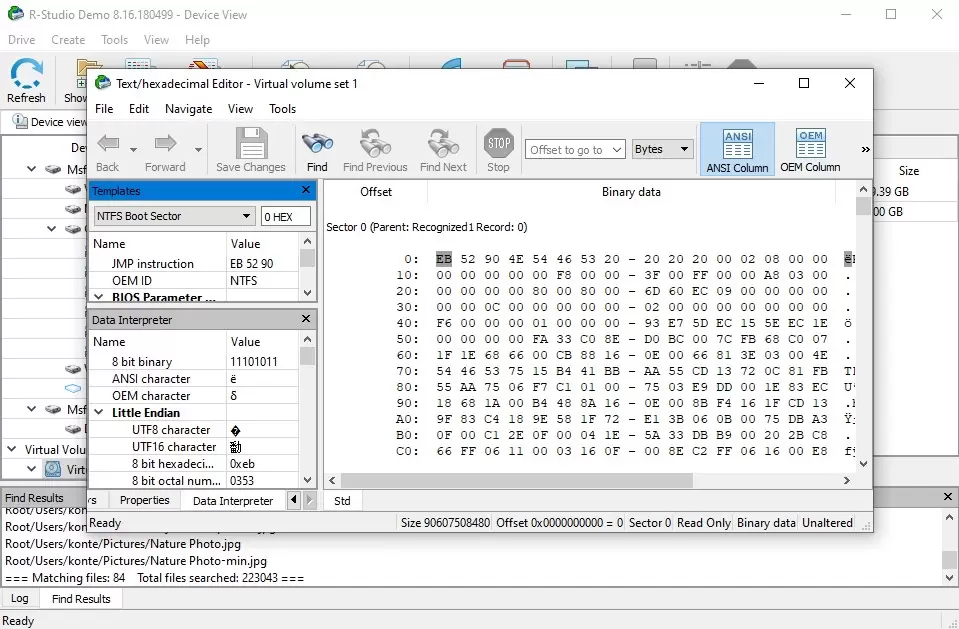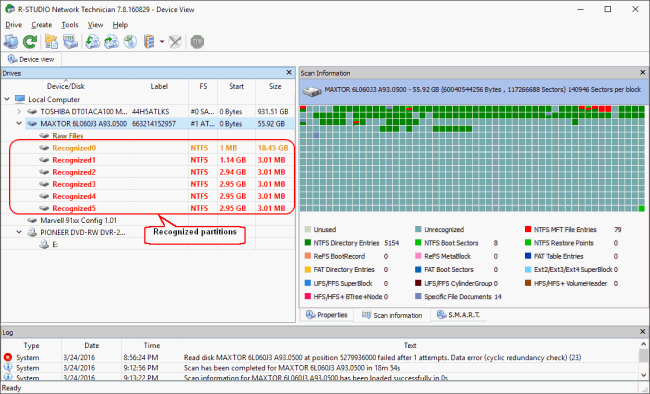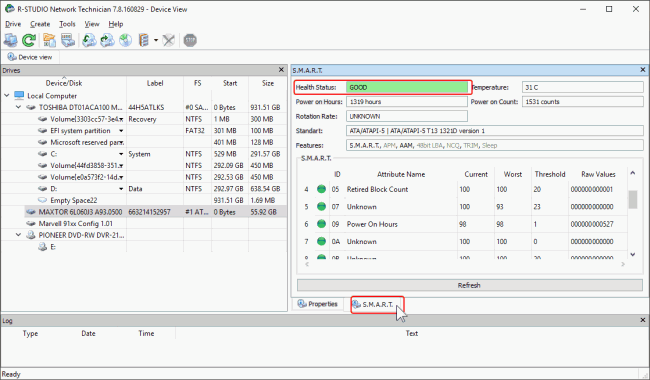
R-Studio Data Recovery (Activation number included)
Last Updated:20-07-2024, 10:50
r-studio data recovery full
About
r-studio data recovery full
R-Studio Data Recovery Full: Comprehensive Guide R-Studio Data Recovery Full: Comprehensive GuideIntroduction to R-Studio Data Recovery Full
R-Studio Data Recovery Full is a powerful and versatile data recovery software designed to recover lost or deleted files from various storage devices. Whether you've accidentally deleted important files, formatted a disk, or experienced a system crash, R-Studio Data Recovery Full offers a robust solution to retrieve your data. This software supports multiple file systems, including FAT, NTFS, HFS+, and Ext2/Ext3/Ext4, making it a versatile tool for both Windows and Mac users.
Key Features of R-Studio Data Recovery Full
R-Studio Data Recovery Full boasts a range of features that set it apart from other data recovery solutions. These features ensure that users have the best chance of recovering their lost data efficiently and effectively.
Advanced Disk Scanning
One of the standout features of R-Studio Data Recovery Full is its advanced disk scanning capability. The software employs sophisticated algorithms to thoroughly scan storage devices, identifying and recovering lost files even from severely damaged or formatted disks. This feature is particularly useful in scenarios where other data recovery tools fail to detect recoverable data.
Support for Multiple File Systems
R-Studio Data Recovery Full supports a wide array of file systems, making it a versatile tool for users across different platforms. Whether you're using a Windows, Mac, or Linux system, R-Studio can recover data from FAT, NTFS, HFS+, and Ext2/Ext3/Ext4 file systems. This broad compatibility ensures that users can recover their data regardless of the operating system or file system in use.
Raw File Recovery
Another notable feature of R-Studio Data Recovery Full is its raw file recovery capability. This feature allows users to recover files based on their signatures, even if the file system is severely damaged or unrecognizable. Raw file recovery is particularly useful for recovering files from disks with corrupted file systems or those that have been repartitioned.
Network Data Recovery
R-Studio Data Recovery Full extends its capabilities to network drives, enabling users to recover data from remote computers over a network. This feature is particularly beneficial for IT professionals and businesses that need to recover data from networked systems without physically accessing the devices.
Customizable File Recovery
The software allows users to customize the file recovery process by setting specific parameters for file types, sizes, and dates. This customization helps in narrowing down the search and improving the efficiency of the recovery process. Users can also create and save custom templates for future use, making the recovery process quicker and more streamlined.
Using R-Studio Data Recovery Full
Understanding how to use R-Studio Data Recovery Full effectively is crucial for maximizing its potential. Below are the steps to guide you through the data recovery process using this software.
Step-by-Step Guide
Follow these steps to recover your lost data using R-Studio Data Recovery Full:
Step 1: Install R-Studio Data Recovery FullBegin by downloading and installing the R-Studio Data Recovery Full software on your computer. Ensure that you have the necessary permissions to install software on your system.
Step 2: Select the DriveLaunch the software and select the drive from which you want to recover data. R-Studio will display all connected drives and partitions, making it easy to identify the target drive.
Step 3: Initiate a ScanClick on the "Scan" button to start the disk scanning process. R-Studio will perform a thorough scan of the selected drive, identifying lost or deleted files. You can choose between a standard scan and an advanced scan based on the severity of the data loss.
Step 4: Preview Recoverable FilesOnce the scan is complete, R-Studio will display a list of recoverable files. You can preview these files to ensure they are the ones you need before proceeding with the recovery.
Step 5: Recover FilesSelect the files you want to recover and click on the "Recover" button. Choose a destination folder to save the recovered files. It's advisable to save the recovered files to a different drive to avoid overwriting the original data.
Advanced Techniques with R-Studio Data Recovery Full
For users who require more advanced data recovery techniques, R-Studio Data Recovery Full offers several advanced features and customization options.
Creating Disk Images
Creating a disk image is an effective way to preserve the current state of a drive before attempting data recovery. R-Studio Data Recovery Full allows users to create disk images, which can be used for recovery at a later time. This feature is particularly useful for forensic analysis and ensuring data integrity.
Using RAID Reconstruction
R-Studio Data Recovery Full supports RAID reconstruction, making it a valuable tool for recovering data from RAID arrays. Users can manually configure RAID parameters or let the software automatically detect the RAID configuration. This feature is essential for IT professionals and businesses dealing with complex storage systems.
Customizing Scan Parameters
For more granular control over the scanning process, R-Studio Data Recovery Full allows users to customize scan parameters. Users can set specific criteria for file types, sizes, and dates, ensuring a more targeted and efficient scan. This customization helps in reducing the scan time and improving the accuracy of the recovery process.
Troubleshooting Common Issues with R-Studio Data Recovery Full
Despite its robust features, users may encounter some issues while using R-Studio Data Recovery Full. Here are some common issues and their solutions:
Slow Scanning Speed
If you experience slow scanning speeds, try closing other applications and background processes to free up system resources. Additionally, ensure that your system meets the minimum hardware requirements for optimal performance.
Incomplete Scan Results
If the scan results are incomplete, try running an advanced scan instead of a standard scan. Advanced scans are more thorough and can detect more recoverable files. Additionally, ensure that the drive is properly connected and functioning correctly.
Failed Recovery Attempts
If you encounter failed recovery attempts, ensure that the destination drive has enough free space to accommodate the recovered files. Additionally, try saving the recovered files to a different drive to avoid overwriting the original data.
Conclusion
R-Studio Data Recovery Full is a comprehensive and powerful data recovery software that offers a wide range of features to help users recover lost or deleted files. With its advanced disk scanning, support for multiple file systems, raw file recovery, network data recovery, and customizable file recovery options, R-Studio Data Recovery Full stands out as a reliable and versatile tool for data recovery. By following the step-by-step guide and utilizing the advanced techniques, users can maximize the potential of this software and recover their valuable data efficiently.
FAQs
Here are some frequently asked questions about R-Studio Data Recovery Full:
Q1: Is R-Studio Data Recovery Full compatible with all operating systems?
A1: R-Studio Data Recovery Full supports Windows, Mac, and Linux operating systems. It is compatible with various file systems, including FAT, NTFS, HFS+, and Ext2/Ext3/Ext4.
Q2: Can R-Studio Data Recovery Full recover data from encrypted drives?
A2: Yes, R-Studio Data Recovery Full can recover data from encrypted drives. However, you need to have the necessary decryption keys or passwords to access the encrypted data.
Q3: How long does the scanning process take?
A3: The scanning process duration depends on the size of the drive and the type of scan. Standard scans are generally faster, while advanced scans may take longer due to their thoroughness.</


